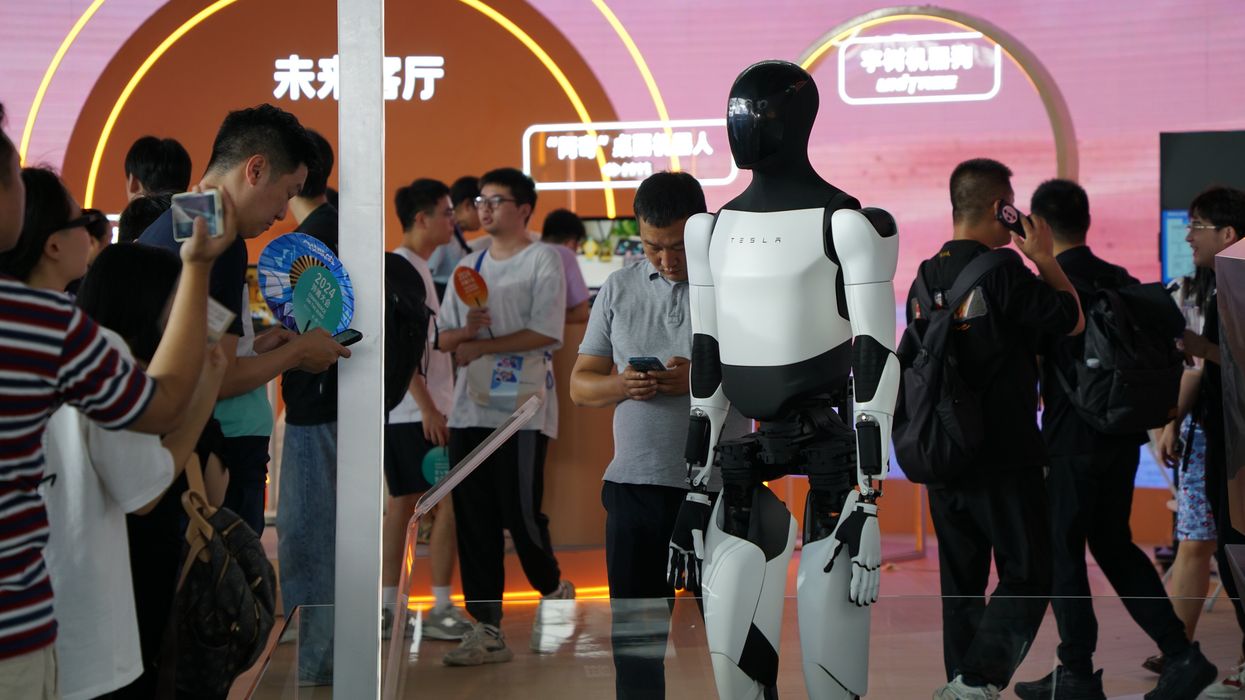Frazier is an assistant professor at the Crump College of Law at St. Thomas University and a Tarbell fellow.
Artificial intelligence will eliminate jobs.
Companies may not need as many workers as AI increases productivity. Others may simply be swapped out for automated systems. Call it what you want — displacement, replacement or elimination — but the outcome is the same: stagnant, struggling communities. The open question is whether we will learn from mistakes. Will we proactively take steps to support the communities most likely to bear the cost of “innovation.”
We’ve seen what happens when communities experience sustained loss of meaningful work. Globalization caused more than 70,000 factories to close and 5 million manufacturing workers to look for new jobs. Those forced to find work elsewhere rarely found a good substitute. The remaining jobs usually paid less, provided fewer benefits and afforded less security in comparison to a union job at a factory, for example.
Economists assumed that those workers would eventually move to more lucrative pastures and find the areas with more economic vibrancy. Workers stayed put. It’s hard to leave your pasture, when it’s the place you, your family and your community have long called home. This tendency to stay put, though, created a difficult reality. Suddenly, whole communities found their economic well-being on the decline. That’s a recipe for unrest.
The same story played out in my home state, Oregon. New technology and policies rendered the timber industry a dying trade. Residents of towns like Mill City, a timber town through and through, didn’t jointly march to a new area but understandably stayed where their families had established deep roots.
It’s time to stop assuming that people will give up on their communities. Home is much more than just a job. So when AI eliminates jobs, what safeguards will be in place so that people can remain in their communities and find other ways to thrive?
I don’t have a full answer to that question, but there’s at least one safeguard that deserves consideration: a rainy day fund. We don’t know when, where and how rapidly AI will upend a community’s economic well-being. That’s why we need to create a support fund that can help folks who suddenly find themselves with no good options. This would mark an improvement on unemployment because it would be specifically targeted to assist those on the losing end of our AI gamble and should be available to both laborers and local governments.
The AI companies responsible for prioritizing their pursuit of artificial general intelligence — AI systems with human-level capabilities — over community stability should front the costs of that fund. Congress can and should tax the companies actively inducing a new wave of displacement.
The fund should be dispersed upon any sizable disruption to a specific industry or sector. Both cities and workers could apply for support to weather economic doldrums and find new ways to thrive. Such support helped us all get through Covid. A similar strategy might help mitigate the worst-case scenarios associated with AI.
The potential downsides of this fund are worth the certain benefits of more resilient communities. A tax or penalty on AI would hinder the ability of AI companies to develop and deploy AI as quickly as possible. The specific allocation of that revenue to a rainy day fund might also nudge companies to avoid creating models likely to disrupt various professions. That’s all fine by me. We have survived centuries without AI, there’s no need for the latest and greatest model to come as soon as possible, especially given the immense costs of that pace of innovation.
Now is the time for Congress to enact such a proposal. Following the election, we may find Congress to be even more gridlocked and fragmented than before. Elected officials should welcome the chance to tell their constituents about a policy to bolster their economic prospects.
The urgency to address the job displacement caused by AI cannot be overstated. By establishing a rainy day fund, taxing AI companies to support displaced workers and exploring additional policies to maintain community stability, we can mitigate the adverse effects of rapid technological advancement. Congress must prioritize the well-being of communities over the relentless pursuit of AI innovation. Doing so will not only knit a stronger social fabric but also ensure AI develops in line with the public interest.



















 Senate Committee on Commerce, Science, and Transportation ranking member Sen. Maria Cantwell (D-WA) (R) questions witnesses during a hearing in the Russell Senate Office Building on Capitol Hill on February 10, 2026 in Washington, DC. The hearing explored the proposed $3.5 billion acquisition of Tegna Inc. by Nexstar Media Group, which would create the largest regional TV station operator in the United States. (Photo by Chip Somodevilla/Getty Images)
Senate Committee on Commerce, Science, and Transportation ranking member Sen. Maria Cantwell (D-WA) (R) questions witnesses during a hearing in the Russell Senate Office Building on Capitol Hill on February 10, 2026 in Washington, DC. The hearing explored the proposed $3.5 billion acquisition of Tegna Inc. by Nexstar Media Group, which would create the largest regional TV station operator in the United States. (Photo by Chip Somodevilla/Getty Images)
